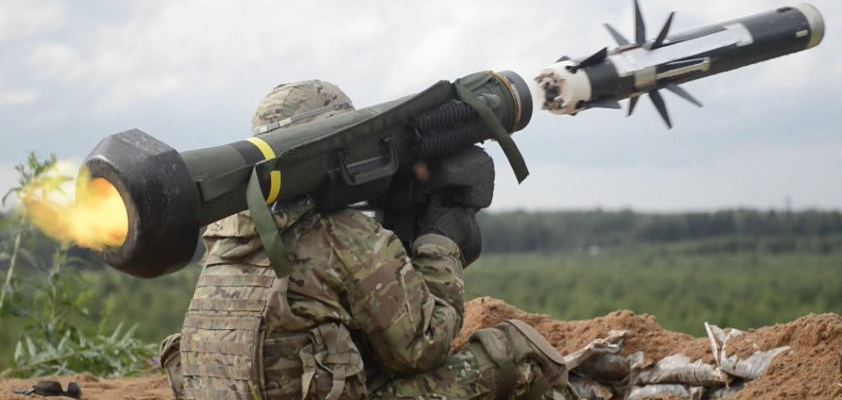By Greg Godels
“War… What is it good for… Absolutely nothing!”
Today, over fifty years after Edwin Starr’s Vietnam-era song reached number one on the Billboard chart, people are searching desperately to figure out what the six-month war in Ukraine is good for.
Of course, it depends on who you ask.
For the weapons manufacturers in the US, NATO and Russia, the Ukraine war is a delightful gift. Weapons are pouring into Ukraine and quickly expended. The arms makers enjoy what they must consider a too-rare opportunity to showcase new and inventive systems in actual combat, before the eyes of customers and against competitive adversaries. The Ukraine war – thanks to media alarmism – finds new customers throughout Eastern Europe and beyond.
For bourgeois politicians, the war provides a great distraction from their failings and their corruption. The economic crises raging through Europe are obscured by the flames of war. Thanks to a compliant media, Europe’s leaders are transformed from inept bureaucrats into martial giants defending democracy, self-determination and national sovereignty.
For the narrow, reactionary nationalists the Ukraine war is an inspiration. The tribal glory, heroism and sacrifice of war are the lyrics of nationalism. The decades of fragile European unity organized around partnership in US-led globalism was already stretched to the limits by the disastrous economic crisis of 2007-2009. The economic impact, the political contradictions, the mass displacements are fodder for the growth of right-wing populism and beyond. Further, the existing and emerging tensions between the culturally distinct, unevenly developed nations of Europe are highlighted by the war.
The irredentist impulses suppressed by socialism in Eastern Europe are now inflamed by the Ukraine war. Multiethnic countries with ever-shifting borders use the war to rewrite their history and restore their myths. The destruction of the monuments to Red Army liberation in the Baltics is just one example.
The energy corporations in both the US and Russia have benefitted from the war. The US pressed the war on Ukraine and Europe to free them from their predominant dependence on Russian energy sources and to shift them to the vast fracking-liberated gas and oil supplies held by the US. As I argued nearly six years ago and many times since, energy has been and remains at the center of big power rivalry. In New Developments in Political Economy: The Politics of Oil, the then-intensifying US hostility towards Russia was explained by two factors: 1) Russian nationalization of some of its energy industry freezing out US investors and 2) the revolutionary opening of vast US energy resources through fracking. I wrote in January of 2017:
“During the later years of the Obama administration, officials and a compliant press ginned up a new Cold War against Russia. Sanctions, sabre-rattling, … brought tensions far beyond the actual points of contention. An energy-hungry, resource-poor EU has grown dependent upon Russian energy supplies, particularly natural gas. As the US is fast achieving energy independence and beginning the export of liquefied natural gas, the battle for the European market is intensifying and driving hostility with Russia.”
With the invasion of Ukraine, the US found the cause célèbre to wrest the enormous European energy market from the Russians. Behind the provocations, the contests between Russian-friendly and EU-friendly presidential candidates, the EU and Russian Federation courtships, the 2014 coup, the suppression of the eastern Ukraine and the Crimean referendum lies energy imperialism.
After six months, the US is winning the “battle for the European market,” but at great costs to Europe. US energy corporations are making profits, while the supplicating EU struggles desperately to shift to alternative energy sources and scrambles to build infrastructure to receive more expensive liquified natural gas and find cheaper oil. Nothing short of an unnecessary war would produce this costly, unpopular result.
While US corporations enrich themselves from energy politics, the beginnings of a popular European blowback are now apparent. In Prague, for example, mass demonstrations are threatening the government over the war “sacrifices” imposed on the people, as energy prices skyrocket. The beneficiary of this popular rising will likely be the populist right, unless the European lame-left can extricate itself from decades of retreat from class partisanship and rank opportunism.
Ironically, the Russian energy sector has actually benefited from the disruption of traditional markets. Russia’s energy corporations have enjoyed incredibly high oil and natural gas prices, thanks to the chaos in the wake of the war. But they have also found new customers to replace the business lost in Europe – growth in South Asia, Latin America and other regions has kept Russian oil shipments nearly at the level they were in 2019. Of course, the price commanded by a barrel of oil is much higher today. As a consequence, Russia is earning $20 billion a month in oil sales now, compared to $14.6 billion last year. The US-imposed sanctions war has failed miserably.
But aside from the corporations, the politicians and the ultra-nationalists, the war is good for no one.
Ukrainians who might have believed that they were fighting for Western “values” of democracy and economic prosperity have seen their country – the poorest in Europe – become even more deeply mired in poverty. They have seen the Zelensky regime outlaw opposition political parties, strip labor protections and criminalize speech and opinion.
Both Russia and Ukraine have acted forcefully against anti-war sentiment. In nearly all imperialist wars, the belligerents’ media serve as faithful lap dogs, recording every “official” announcement of victories and extolling the prowess of their respective fighters. Therefore, media reports must be taken with a grain of salt. In time, victories will become defeats and vice versa.
In this war, the US media has taken sides, marshaling an unparalleled propaganda blitz behind “heroic” Ukraine. The European news media does little better. Consequently, truth in the advanced capitalist countries grows ever-more elusive. The war has done further damage to the already discredited monopoly media.
But the raw, direct human losses from the destructive power engaged by modern warfare are profoundly tragic. While we have no definitive reports, tens of thousands of military personnel surely have died, even more thousands have been wounded, maimed and mentally scarred. Modern war exacts a nearly equal toll on civilians, regardless of the disclaimers of military apologists. We hear of millions of civilians uprooted from their homes in war zones.
Since the Ukraine war is an imperialist war fought over the energy supplies for one-sixth of global economic activity, it has huge consequences for the global economy. Economic growth, jobs, transportation, utilities, every aspect of life dependent on energy in the EU is jeopardized by the war. The coming winter promises extreme stress on the European population denied access to essential energy supplies.
A global economy already reeling from galloping inflation and stagnant growth undoubtedly will be rocked by the US ruling class’s determination to reset the energy markets. The people be damned.
The war in Ukraine is the logical outcome of the unwinding of globalization, a process that began with the 2007-2009 world economic crisis. As the post-Soviet global infrastructure collapsed, economic nationalism rose in the advanced capitalist countries. Competition intensified and rivalries became more virulent. Inevitably, economic competition leads to confrontation and confrontation leads to war.
The circumstances of war become less important, and the deadly outcomes and possible escalations take center stage. Today, the likelihood of a long, bloody war and its potential expansion beyond borders demand action.
As this tragedy unfolds, the only answer – the working-class answer – is to pull all stops to end it. We desperately need a militant movement to stop this war.
Get People’s Voice delivered to your door or inbox!
If you found this article useful, please consider subscribing to People’s Voice.
We are 100% reader-supported, with no corporate or government funding.




